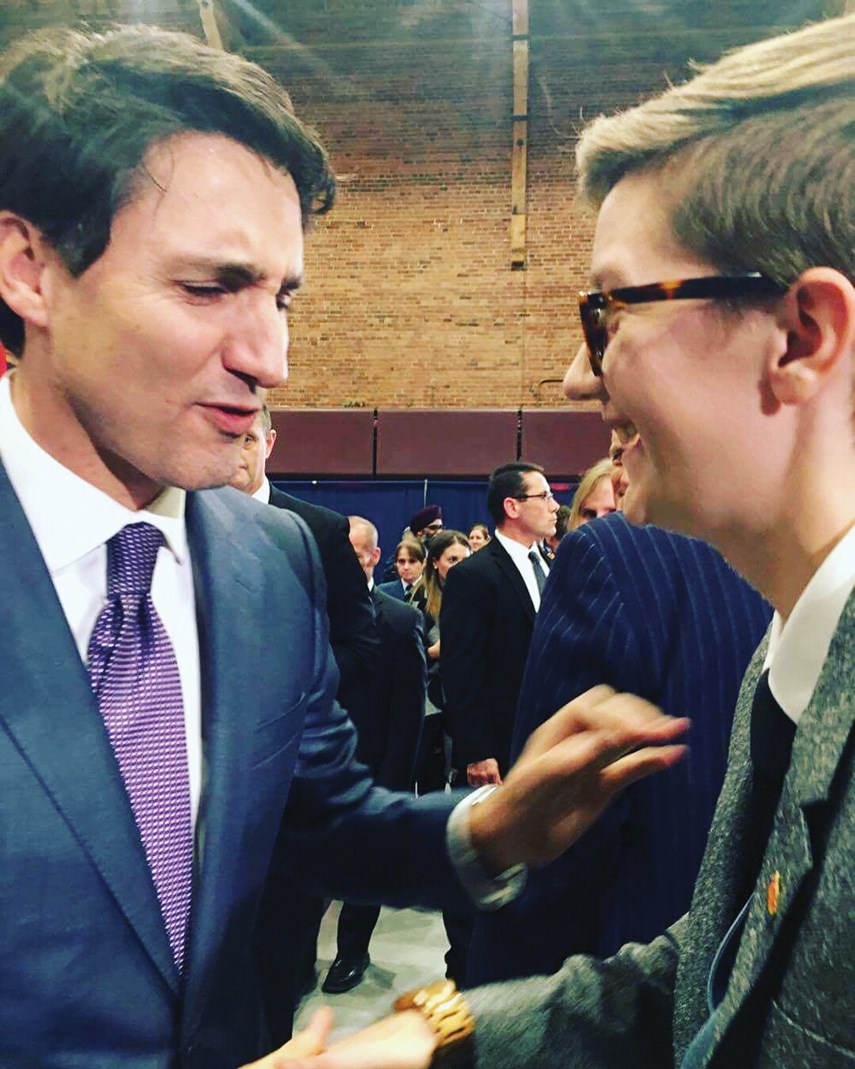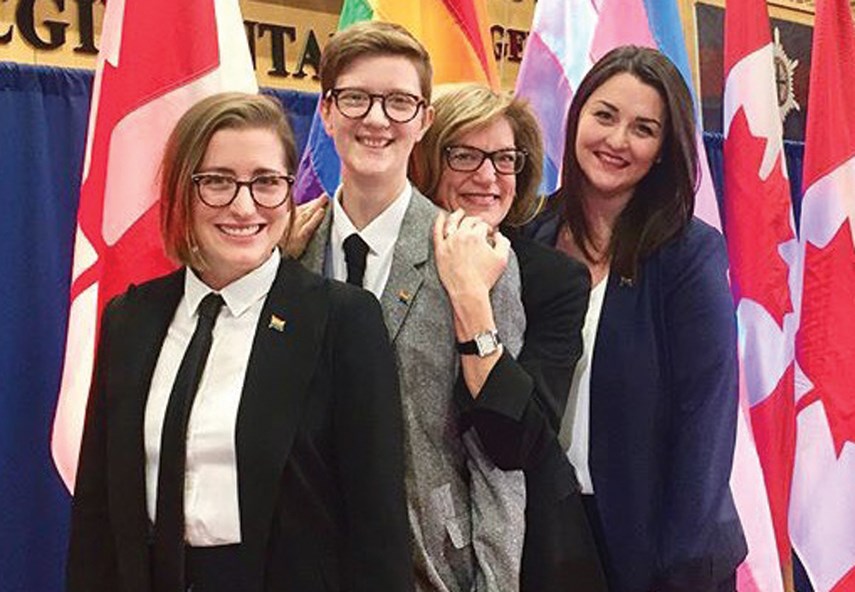While Prime Minister Justin Trudeau apologized for decades of discrimination against the lesbian, gay, bisexual, transgender and queer community Tuesday, one North Vancouverite watched; considering the “tiny, tiny,” part she played in the historic moment.
Grace McDonell, a Handsworth Secondary grad and Thompson Rivers University law student, sat in the gallery in Ottawa alongside her partner as Trudeau made a tearful apology to the thousands of Canadians who were imprisoned, fired, shamed and relegated to the status of second-class citizens because of their sexual identity.
“It was really emotional for my partner and I,” McDonell says. “There were definitely some tears happening.”
McDonell is part of the OutLaws, a coalition of LGBTQ law students and allies appearing as intervenors in the Supreme Court case regarding the legality of Trinity Western University’s covenant forbidding sexual intimacy outside a male-female marriage.
She’d been preparing to head to Ottawa for the case when she got a message from Pamela Goldsmith-Jones, MP for West Vancouver-Sunshine Coast-Sea to Sky Country.
Randy Boissonnault, Trudeau’s adviser on LGBTQ2 issues, had encouraged Goldsmith-Jones to reach out to her community to “help inform” the prime minister’s apology. Goldsmith-Jones sent an email to McDonell, who had worked on her election campaign.
“We discussed what we felt should be included in the apology (and) why an apology was necessary,” McDonell recalls.
“We wanted to make sure that the language, the tone, the message, would be the voice of LGBTQ people,” Goldsmith-Jones says.
Canada’s acknowledgement of wrongdoing is critical, McDonell says.
“That creates, in my opinion, safer communities,” she says.
There are many LGBTQ2 people who still hesitate to live and love openly for fear of how they’ll be received.
“It’s not a one-time deal,” McDonell explains. “You come out, basically every day.”
Trudeau’s words will hopefully help LGBTQ2 youth to “see themselves in society,” according to Goldsmith-Jones.

The apology, which received unanimous support in the House, addressed Canadians convicted of gross indecency as well as military veterans, RCMP officers, and other public service workers who lost their jobs. Trudeau also mentioned the federal government choosing to spend money on the Fruit Machine, a device designed to measure homosexual attraction.
Trudeau reminded his listeners that who they are is valid whether they discover their truth at six, 16, or 60. However, the reference to children seemed to rankle a few MPs who remained seated while others stood to applaud.
McDonell defended the comment, arguing that some people know exactly who they are at a very young age.
“It’s not the place of any Member of Parliament or any public official to impose what they think a six year old, or a 16 year old or a 60 year old should think,” she says.
The apology comes almost exactly 50 years after the Supreme Court of Canada upheld the prison sentence of Everett Klippert, who was jailed after admitting he had sex with men. In his ruling, Justice Gérald Fauteux decided Klippert was, “likely to commit further sexual offences of the same kind with other consenting adult males.”
Trudeau’s speech recalled police entrapment and bathhouse raids while noting those injustices were “more recent” than many would care to admit.
“It was very nice to hear Prime Minister Trudeau give specific examples of wrongs,” McDonell says. “It was very specific to public servants who were kicked out of the military and fired from their jobs.”
While Trudeau supported financial compensation for Canadians who have been persecuted, McDonell says she’d also liked to see some money allocated to education.
“It would be fantastic if that could be implemented and our younger generations could be learning about those injustices,” she says, referring to the widespread purge of gay employees.
Re-examining restrictions on blood donations from gay men and improving healthcare for transgender people should also be top priorities, she says.
While McDonell says she still faces homophobia, it’s “not to the level and to the extent” generations of LGBTQ2 Canadians faced.
“Those were the trailblazers that allowed me to be doing the things I’m doing today. I’m eternally grateful for that. They give me the strength to do what I do on a daily basis,” she says.
Following the speech, McDonell had a few minutes to thank Trudeau and give him a hug.
“To meet the prime minister and to thank him personally was something that I will just never forget.”



